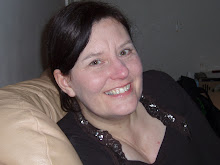
Artemis Fowl is the main character of a series of books by Eoin Colfer, set in the 21st Century. Unlike most main characters, who tend to be virtuous and heroic, Artemis is villainous and ruthless.
He is a twelve year old genius who lives in Fowl Manor, Dublin, Northern Ireland. Although the Manor is traditional in appearance it is full of high-tech equipment. Artemis is a computer buff and loves technology.
His father, Artemis Fowl Senior, had been a billionaire until the Russian Mafia blew up one of his trading ships. Even though the family are still rich, young Artemis, or Arty as his mother calls him, is determined to replace their massive fortune. He intends to do this by stealing gold from the fairies. The incident with the ship has left Arty’s mother Angeline deeply disturbed, in fact more than a little batty. She lives in the attic.
Young Artemis doesn’t look like most twelve year old boys. He has dark hair and blue eyes, but his skin is vampire-white from spending so much time on the computer. As the family are rich he wears designer suits.
His intelligence is so amazing, he is what is often referred to as a child prodigy. This super intelligence, coupled with his determination makes him calculated and sinister.
His motto is ‘know thine enemy.’ He has several enemies and he loves playing mind games with them. He is prepared to lie to get what he wants and is cold hearted. The only thing known to upset him is his mother’s madness.







